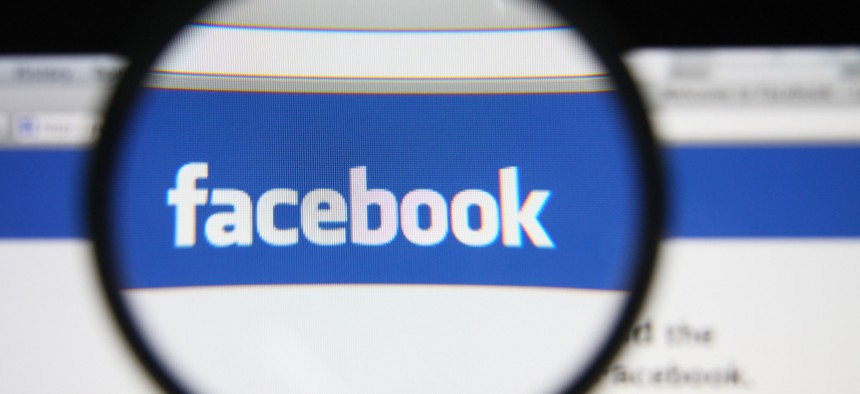Facebook’s Power to Undermine Democracy Is Getting Stronger—And It’s Fueling Oppressive Regimes

Gil C/Shutterstock.com
The debate over whether social media helps or hinders political movements in authoritarian-leaning countries is as old as the technology itself.
While Facebook assures western powers, from Germany to the United States, that it will do everything it can to help them defend their democratic processes from malicious actors, it continues to aid, in one way or another, oppressive regimes across the world.
The debate over whether social media helps or hinders political movements in authoritarian-leaning countries is as old as the technology itself, but as Facebook is increasingly becoming the dominant news source in many parts of the world, its power to boost or undermine democracy is only gaining strength.
Censorship and content moderation
In the span of just several years, Facebook became the prevailing source of information in Myanmar, with more people having access to the platform than to steady electricity in their homes, The Washington Post reported. In today’s world, social media platforms are a crucial part of a country’s political transition from authoritarianism to democracy—where there is no long, established tradition of free and independent media, people rely on social platforms to share information, including falsities. From the very beginning, some in Myanmar have been using Facebook to stoke ethnic hatred toward the Rohingya Muslim minority. Now, as the Rohingya are being effectively purged by the Myanmar military, activists say their posts documenting the atrocities are being censored by Facebook, the Daily Beast reported, while government and military representatives spread anti-Rohingya information from their personal pages, according to the Post.
At least part of the problem in the country appears to be Facebook’s content moderation system and rules. Any user can flag a post as undesirable, and content that intends to raise awareness about atrocities or hate speech can be be interpreted by Facebook moderators as a violation of “Community Standards” that prohibit the celebration of violence. Although Facebook says it is giving the situation in Myanmar special consideration, its content moderators are usually all around the world, and, by design, have no context for flagged information.
The “Explore” experiment
While in Myanmar, Facebook’s role has mostly to do with how the information is shared and controlled by the platform, Cambodia’s Facebook-related problem is a direct result of the company’s experiment in the country.
When it turned out that the platform was testing pushing news content out of its main feed into a feature called “Explore,”publishers around the world started panicking about potential loss in revenue—but in Cambodia the move immediately felt like an attack on democracy and freedom of speech. Amid a government crackdown on NGOs and media outlets, Facebook’s experiment caused these institutions to lose even up to 60% of their traffic.
The same thing happened in Serbia, one of the many young democracies in Europe that are still quite fragile. Stevan Dojcinovic, an investigative journalist in the country wrote a poignant op-ed in The New York Times about how his independent news outlet, which relies on Facebook for traffic, was getting crushed by the Explore feed experiment. If the change were to become permanent, “pliant” mainstream news organizations who get funding from the government would be easily able to find alternative ways to reach their audience.
The political power of a Facebook campaign
In the Philippines, Facebook’s involvement has been even more straightforward. Like in Cambodia, the platform is ubiquitous—97% of the population that is online has an account. A feature from Bloombergrecently described just how instrumental Facebook had been in the election of Rodrigo Duterte, the country’s strongman president who has shocked the world with his brutal, deadly anti-drug crackdown. The company’s employees helped train Duterte’s campaign (as well as other candidates’) in how to use the platform’s tools, knowledge the team used very effectively. The problem is, the camp’s promotion of the candidate included spreading false information. After Duterte was elected, Facebook only expanded its collaboration with the new government, while an army of pro-Duterte trolls kept organizing attacks on his opponents, including the free press.
Fake news
Governments have always spread “fake news”—after all, it’s just another term for propaganda. They’ve also always disparaged alternative sources of information.
But the ever-growing heaps of internet trash, “facts” made up from top-to-bottom that reach the public eye largely thanks to Facebook, have given authoritarians or leaders with anti-democratic tendencies all over the world a convenient go-to term to discredit legitimate news that present them in an unfavorable light. The phrase, promoted by Donald Trump, who occupies the position once described as “the leader of the free world,” has entered the vocabularies of the leaders of: Syria, Venezuela, China, Russia, Libya, Somalia, Turkey, and Poland, among many others, Politico reported.





